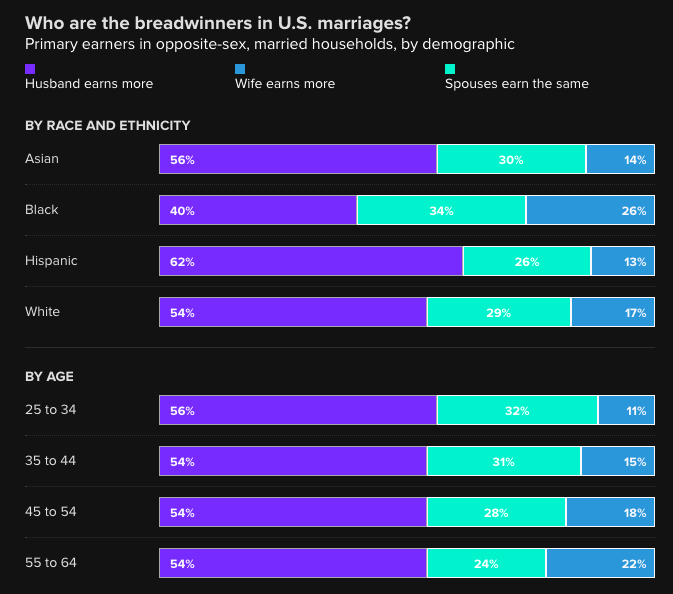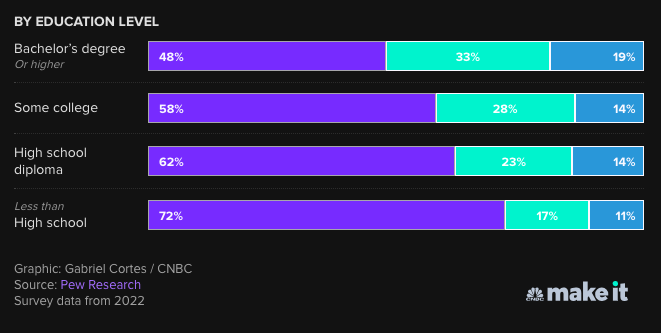Grappling with Red Pilling

Friday evening, I had the privilege of watching my fifth group of seniors cross the stage in a very boisterous auditorium at the Emirates Palace. They were eighth graders when we arrived in 2019. Man, time flies by.
As we approach the end of the school year, I am checking off the usual end-of-year rituals: Prom, check. Graduation, now checked. Staff farewell party, next weekend. Last day of school, the following Friday. The next day, Hope and I return to North America for summer break.
Typically, this time of year is relatively quiet as far as parent communication. However, I was surprised mid-week to receive an email from a parent expressing concerns about their child espousing certain "political things" at home.
Initially, I was put on the defensive by the email. I have never been one to preach my politics in the classroom. I think because people see my online presence, they assume that I am the same way in my work life. Despite how much the haters claim (in whole bitter AF letters to the editor), I don’t use my classroom as a soapbox or for indoctrination. I am a professional. I am able to separate my personal advocacy from my work obligations.
In fact, it’s kinda the opposite. I walk a bit of a tightrope in my classroom. As a teacher of U.S. Government as well as Comparative Politics in a U.S. Embassy school, I operate in an environment where discussions about our host country and US foreign policy need to be approached with delicacy. While this calls for a fair bit of care, I have never felt censored. I was aware of these conditions when I accepted the gig.
Back to the main story.
When I met with the parent, I realized the conversation about "indoctrination" I anticipated was not the discussion they wanted to have. Rather, they were concerned about their child sharing newly discovered views on several political issues. I realized they felt like their kid was being red-pilled and were seeking advice on how to address it.
For those unfamiliar, a quick definition of red pilling is to “cause (someone) to have their perspective dramatically transformed.” The term originates from a scene in 1999’s The Matrix.
More specifically, it has come to be identified with lurches into reactionary politics. This piece from New America does a good job explaining the evolution of the term outside of the context of the film:
As in the film, to be blue-pilled is to accept the mainstream narrative and choose to live in ignorance of the truths of the world. Red Pillers see themselves as intellectually superior to “blue-pilled normies.” The Red Pill terminology grew in male supremacist forums and was adopted more broadly by far-right and white supremacist groups to describe their own versions of awakenings, conspiracist worldviews that often overlaps with male supremacist positions, such as antifeminism.
So, to be red pilled is to reject the more egalitarian trajectory of the last several decades on gender issues and to move and embrace anti-feminism, as a gateway, and eventually adopting a particular brand of right-wing politics. Careful readers are likely thinking about our prior discussion of Doppelganger by Naomi Klein. Yes, Wolf was red pilled.
I didn’t at the time and still don’t have a ton of advice for the parents or anyone else in this boat. But I don’t think you come here for my expertise on parenting.
That said, since then I have been doing some reading and research.
I came across this long-form video from DW (Germany’s equivalent of the BBC), not sure if it was serendipity or because "Google is always listening." It explored the growing political gender gap across several countries, including the US, with men turning increasingly right. The video argued that what we're seeing is a political and social backlash.
One line really stuck with me, and I think it's an important idea to keep in mind—"Equality always feels like a loss to the people who were previously unfairly advantaged." If you think about the cyclical backlashes to racial equality movements and racial progress, it helps contextualize what's going on with the gender divide. The video was definitely worth my time and I’ve embedded it at the bottom of the newsletter.
Through legislation and court precedent, women (for the most part) gained political equality in the US in the latter half of the 20th century. But there are still strides to be made on economic equality and persistent gender/wage gaps, though the data sometimes tells contradictory stories:
According to NBC News, more women than men are graduating from universities.
In select career fields and urban markets, single women out earn single men
At the same time, the wage gap is very real: the U.S. Department of Labor reported in 2022 that women earned just 83.7% of what men did for full-time work
On the other hand, more married women are out earning their male spouses than at any time in US history.
Here’s the data on that last one by race/ethnicity and age.

And here’s the data by level of education.

There's enough lurking in that data that people with various agendas can plant a flag and pitch their ideological tent. Conflict entrepreneurs (a term you may not know but I bet clicks pretty quickly) and online influencers like Andrew Tate have built large audiences with their anti-feminist politics. The videos and posts are being algorithmically served to young men all across the US and across the world. And some very retrograde views about the role of women in society are taking root in the minds of young men.
In this piece from Vox, Christine Emba argues people on the political left need to acknowledge some of the gaps that have developed and propose policy to address the struggles that men, particularly working class men face, rather than ceding further ground to the podcast-man-o-sphere-industrial-complex.
Listen, I'm neither a parent (thank God) nor an expert on this. But I have talked to enough educators and people who are parents to know that this is a very real phenomenon and one with long term societal implications.
I would love to hear your thoughts. Blow up my inbox on this and I will share your insights and next week's newsletter along with some final thoughts on Chip War.
–
Here’s the DW video.